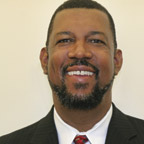2009 State of the Workforce Report

Over the last few months, we have discussed the regional and national workforce challenges resulting from a global economic downturn. But as our economy begins the slow process of recovery, it will also be important to look ahead to future economic growth sectors and the resulting short- and long-term implications for businesses and our regional workforce.
In early October, the Central Illinois Workforce Board hosted the 2009 Workforce Forum. This year, the focus of the forum was the future economy, specifically “green jobs.” Andrew Winston, a globally-recognized expert on how business can profit from thinking green, was the featured speaker. He co-authored the best-seller Green to Gold and is the author of Green Recovery, a guide to surviving—and thriving—in an economic downturn.
Winston’s presentation, “Green Recovery: Get Lean, Get Smart and Emerge from the Downturn on Top,” highlighted what works—and what doesn’t—when companies go “green.” According to Winston, going “green” is really a business strategy. He believes businesses need to look at going green as an investment, not as a cost. Climate action is now a political and business reality, and companies need to change their products and strategies to deal with that fact. Everything costs money. The question is where you put that money. Leading companies are reducing energy use.
Winston noted that Wal-Mart, the world’s largest retailer, was doing a series of things to lower costs: reducing energy use and redesigning packaging by asking suppliers to meet specific standards. The cost of doing business is changing, and being carbon-fat is getting much more expensive. These are critical issues to understand and prepare for.
The “green wave,” as Winston called it, is a global movement. America is facing a revolution of changing demographics, emerging technologies and global competition. The 2009 Workforce Forum examined how these workforce and economic trends affect the community and the way we do business in central Illinois.
The forum also hosted an interactive panel discussion with local experts in “green” education, careers and business strategy. The panel discussion was moderated by Dr. Jack Gilligan and included Jonathan Feipel, deputy director, DCEO/Illinois Energy Office; David Loomis, associate professor, Illinois State University; and Ginger Johnson, executive director, TRICON.
During the forum, the 2009 State of the Workforce & Annual Report was distributed to the attendees. The report identified the key quantitative, qualitative and economic challenges necessary to prepare our workforce for the 21st century global knowledge and innovation economy. In our next article, we will highlight some of these challenges and how central Illinois is responding to them. iBi

